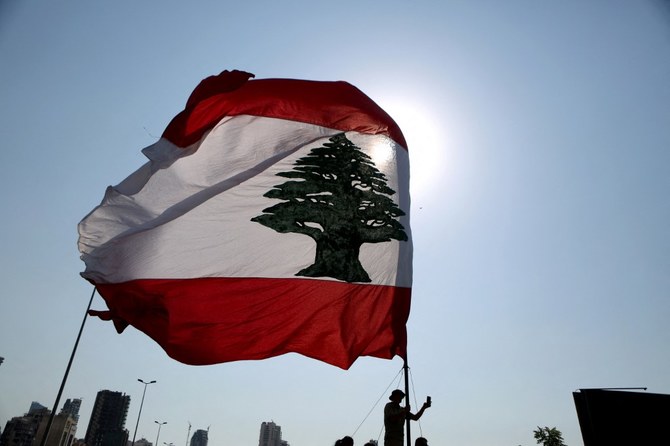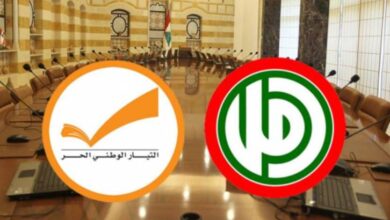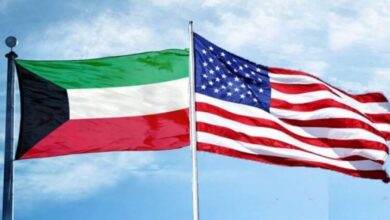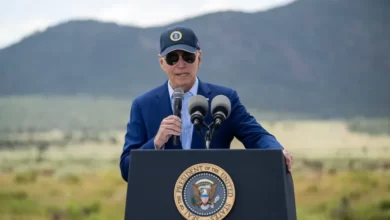Not even ‘Robin Hood’ Yassin Fawaz can save Lebanon from its rulers

By Maria Maalouf
The political and economic crises in Lebanon reveal the ruling political system’s state of denial. So great is their delusion, the political elite for a time maintained, despite all evidence to the contrary, that the causes of Lebanon’s woes were foreign in nature.
But the truth always comes out and it was demonstrated by the Oct. 17 revolution in 2019: That the problems with the Lebanese political system come from within because that system adopted and mainlined corruption.
The Lebanese people took to the streets and erected a gallows in Martyrs’ Square in the center of the capital, Beirut. In so doing, they removed the fig leaf that the elite used to mask their illusions — a fig leaf that included the idea that the Amal Movement, a nominally peaceful Shiite establishment party, and Hezbollah, an international terrorist group, are fundamentally different.
The political elite sold those illusions, hidden behind that fig leaf, to Lebanese citizens, who were forced to become prisoners of an economic crisis classified as the worst financial disaster to befall any country in more than a century. This is what prompted Western countries to take the initiative in an attempt to save what could be salvaged, with the support of the US.
The Lebanese were told that, to be helped, they must first help themselves — and the Americans and others in the West bet on the people to bring about vital political change. They hoped that this would happen in the parliamentary elections that took place in May 2022, especially as they included, for the first time, candidates who offered a political and economic vision for the salvation of Lebanon and its people.
Perhaps the well-known Lebanese American businessman Yassin Fawaz (known as King Rolodex on social media and in the streets) could have been part of the necessary changing of the guard. Some said that, rather than Amal’s candidate for speaker of the parliament — Nabih Berri, an 85-year-old man who has been in office since 1992 — Fawaz, who represents the youth, could have taken the role.
For many Lebanese, if Fawaz is Robin Hood, the country itself and its government is the villainous Prince John
Maria Maalouf
But those who are part of the corrupt system in Lebanon had other ideas. Berri is Hezbollah’s man. Fawaz was intimidated and eventually forced into electoral oblivion because he was an enemy of the corrupt establishment and Hezbollah, which brought about the country’s collapse.
Fawaz ran as a Shiite candidate in last year’s parliamentary elections. He did so as an independent, stating that he could not run a real campaign as it was not a real election — because Lebanon does not have real democracy. This is something the people understand, he said.
If we had a real democracy, politicians would not remain in office forever. They would feel the consequences of their role in disasters such as the Beirut port explosion and the financial crisis. But until this changes, everything in Lebanon, including the media and politics, will continue to be controlled by the politicians and the establishment — people who have been in power forever.
Some have described Fawaz, who combines charismatic eloquence with political activism and philanthropy, as the “Robin Hood of Lebanon.” They say he is authentic in a way the elites cannot match because he is genuine, with no links to the corrupt political class. His castigation of the people who voted for the same old politicians in last year’s election went viral and struck a chord.
For many Lebanese, if Fawaz is Robin Hood, the country itself and its government is the villainous Prince John, robbing them of their savings, imposing harsh charges and rationing services. Fawaz can strive to raise awareness of poverty in Lebanon and help the people he meets, but lasting salvation for those who are suffering lies solely in the hands of the state — if it were willing to help. Robin Hood cannot save the kingdom on his own.
Observers see and know that Hezbollah is the cause of the economic collapse in Lebanon and the country’s isolation from its Arab neighbors. Hezbollah’s weapons, its terrorism, its military adventures in Syria and elsewhere abroad, and its leadership’s influence on the repression of Arab countries all contribute to Lebanon’s poverty and isolation.
As a result of all this, the crisis has deepened. The corrupt elite have blocked the political horizon for resolving the situation. The failure of the system in Lebanon to implement the structural reforms of the economy and politics that were promised to the international community, together with the elite’s procrastination, have led to disaster.
Lebanon’s leaders have had to be dealt with harshly and this has meant an international policy of imposing sanctions on all who obstruct political and economic reform, not to mention their disruption of vital government work.
Those affected by this package of sanctions include the head of the Free Patriotic Movement, Gebran Bassil, a minister who stood in the shadow of his father-in-law — former President Michel Aoun — and basked in his reflected glory, thinking himself responsible for the accomplishments that earned the credit.
He is one of the reasons for Lebanon’s transformation into a failed state, due to the enormous waste and plentiful corruption at the Ministry of Energy, which he presided over. Much other responsibility can be laid at the feet of Bassil’s political team, which did whatever it wanted for more than a decade. Half of the Lebanese public debt is the result of the costs of supplying electricity and other arbitrary plans.
Still the politicians were not deterred, so it has been necessary for those in the international community who want to see reforms to escalate their efforts to target the Lebanese political and economic system.
Sources in the US have indicated that the administration of President Joe Biden is close to imposing sanctions on Riad Salameh, the governor of the country’s central bank, Banque du Liban, after the Treasury Department raised concerns about his relationship with Hezbollah and links between Hezbollah financiers and the bank.
American officials are confident in their assessment of Salameh’s relationship with Hezbollah. Some have linked this with the US Treasury’s decision to impose financial sanctions on money service company CTEX Exchange.
Its board of directors is headed by economist Hassan Moukalled, who is considered to have close links to Hezbollah on the one hand and the Russian business community on the other. He also has an excellent relationship with the governor of Banque du Liban, which granted him a banking license in March 2020 in the midst of the economic and financial crisis. Moukalled’s company was reportedly carrying out exchange operations for the benefit of the central bank, in coordination with Salameh.
The Treasury said it was sanctioning Moukalled and CTEX for facilitating the financing of Hezbollah through the company’s exchange centers.
It is clear that the crisis in Lebanon can only be resolved through a decisive and firm approach. The question now is not whether Lebanon’s Robin Hood and his friends can ride to the rescue and save the country but, sadly, will we be faced with more painful decisions caused by the corrupt political system?
- Maria Maalouf is a Lebanese journalist, broadcaster, publisher and writer. She has a master’s degree in political sociology from the University of Lyon. Twitter: @bilarakib
Disclaimer: Views expressed by writers in this section are their own and do not necessarily reflect “political opinion” point of view
Source: Arab News





